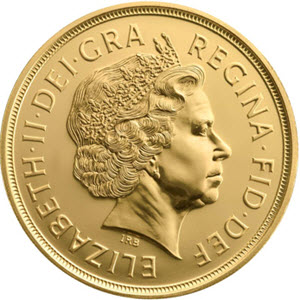Pound Sterling (GBP)
The pound sterling is the oldest currency still in use which has been in continuous use since its inception. It is the fourth most traded currency on the FX market (May 2015). It is also the third-most held currency in national currency reserves, although it make up less than 5% of all the reserve currency.
 Basic information about the Pound sterling
Basic information about the Pound sterling
- The ISO 4217 code for the Pound sterling is GBP (numerical: 826). The Pound sterling is sometimes abbreviated UKP but this is not ISO 4217 standard.
- The symbol for the Pound sterling is £. (This symbol is also used for several other currencies named pound or lira, e.g. the Lebanese pound.)
- The central bank for the British pound is The Governor and Company of the Bank of England
- 1 Pound sterling equals 100 pence. (The singular form of pence is penny.)
- The Pound sterling is sold freely on the FX market.
- The Pound sterling used be a commodity currency, and then have a gold standard, but is today a fiat currency.
-
GBP FX Trade Fun Fact
- Within the world of FX trade, the GBP/USD currency pair is nicknamed cable. This is because the exchange rate for these two currencies used to be sent between Europe and North America via transatlantic telegraph cable.
- Among FX traders, the Pound sterling is normally called sterling (abbreviated Ster. or stg) rather than pound, since there are several different currencies world-wide named pound.
GBP as the official currency
GBP is the official currency of:
| The United Kingdom |
| Jersey |
| Guernsey |
| Isle of Man (alongside the local Manx pound) |
| Gibraltar (alongside the local Gibraltar pound) |
| Falkland Islands (alongside the local Falkland Islands pound) |
| The British Overseas Territory of Saint Helena, Ascension and Tristan da Cunha (alongside the Saint Helena pound) |
| The British Antarctic Territory |
| South Georgia and the South Sandwich Islands |
The British Crown dependencies of Guernsey and Jersey are allowed to produce their own local issues of sterling: the Guernsey pound and the Jersey pound.
The Manx pound, Gibraltar pound, Falkland Islands pound, and Saint Helena pound are not local issues of Pound sterling and they are not regulated by The Governor and Company of the Bank of England.
Monetary policy
The British government has authorized The Governor and Company of the Bank of England to set and enforce monetary policy for the Pound sterling. In everyday speech, this entity is referred to simply as Bank of England.
Monetary policy is set by a committee. In extreme economic conditions, the committee is obliged adhere to the orders of Her Majesty’s Treasury (the Exchequer), if it is necessary with regards to the public. Such orders are only valid for 28 days. After 28 days, they will only remain valid if approved by Parliament.
The issuing of coins and bills
In England and Wales, only The Governor and Company of the Bank of England is allowed to issue Pound sterling. It is authorized to issue Pound sterling at its own discretion.
In Scotland and Northern Ireland, certain authorized banks may issue Pound sterling, but only while following directions issued by The Governor and Company of the Bank of England. In Scotland, these banks are the Bank of Scotland, the Royal Bank of Scotland and the Clydesdale Bank. In Northern Ireland, the authorized banks are the Bank of Ireland, the Northern Bank, the Ulster Bank and the First Trust Bank.
Trivia
- The term pence sterling is used in situations where it is important to distinguish the pence sterling from other currencies. You may for instance see this term when trading in company shares. It can be abbreviated GBX or GBp.
- The most commonly used symbol for Pound sterling is £, but you may also encounter the ₤.
- The £ and ₤ are abbreviations of the Latin word libra, the basic Roman unit of weight. In Anglo-Saxon England, 240 silver penny coins were equal to one pound weight of silver. Up until decimalisation in 1971, 1 Pound sterling was equal to 240 pence, even though the coins were no longer made from silver. Since decimalisation, 1 Pound sterling is equal to 100 pence.
- The Pound sterling is nicknamed quid.
This article was last updated on: June 17, 2016